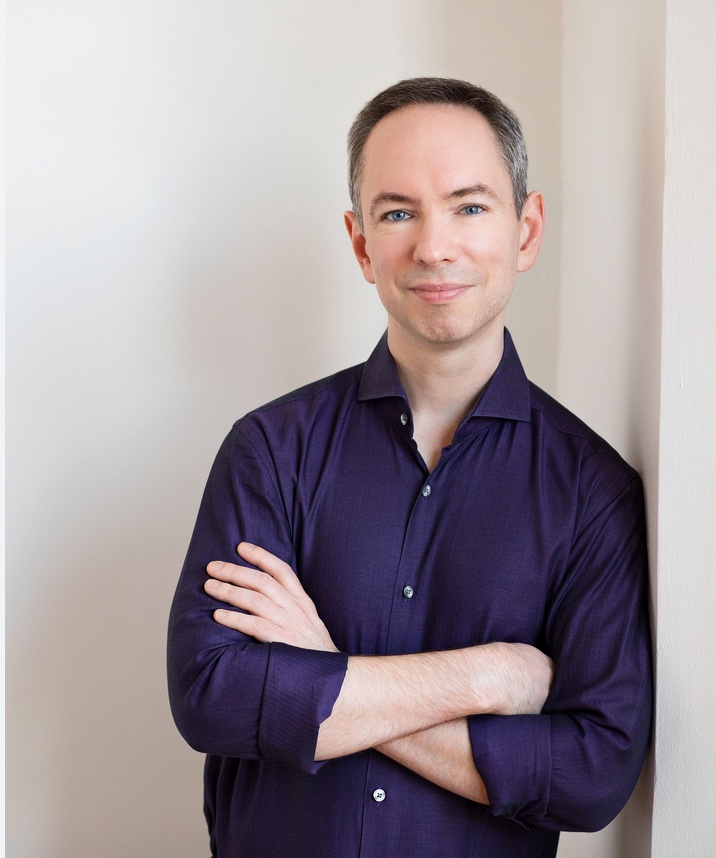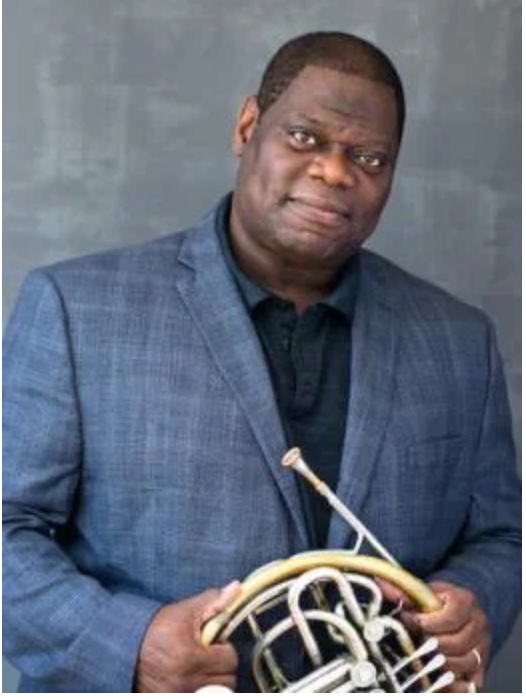by Mike Telin

On Saturday, March 2 at 7:00 pm in First Lutheran Church of Lorain and on Sunday, March 3 at 4:00 pm at St. Paul’s Episcopal Church in Cleveland Heights, Ristow will lead the ensemble in “Choral Splendor: Old and New.”
The program creates six “time loops” of older pieces and newer responses performed side by side: Gregorio Allegri’s Miserere mei, Deus will be paired with Claudia Hinsdale’s Joy: A Variation on Allegri’s Miserere, Sebastien de Vivanco’s In Manus Tuas with Andrew Rindfleisch’s In Manus Tuas: A Parody Motet, and Dietrich Buxtehude’s “Ad manus” from Membra Jesu Nostri with Caroline Shaw’s To the Hands.
The program also includes two world premieres: Joshua Estok’s If You Love Me (after Thomas Tallis’s If Ye Love Me) and Jeff Scott’s Nǐ de Mìngyùn, Wǒ de Mìngyùn (“Your Destiny, My Destiny”) in dialogue with Igor Stravinsky’s Yule Divinations: Four Russian Peasant Songs.
I caught up with composer Jeff Scott — who is also an associate professor of horn at Oberlin College & Conservatory — by phone and began our lively and interesting conversation by congratulating him on his recent Grammy Award.

Mike Telin: In your program notes you say that Nǐ de Mìngyùn, Wǒ de Mìngyùn is “a work whose purpose is for an aural experience, part of a larger, personal exploration into various systems of belief, and music derived from their practices. My first fascination in this journey was to learn how important the tenet of divination is in East Asian and West African culture.” When were you first introduced to the practice of divination?
JS: Greg [Ristow] had a curiosity about it. He also had the idea of pairing the Four Peasant Songs for four horns and chorus by Stravinsky with another piece of music. He just told me, “I’m interested in divination,” and didn’t give me any major parameters.
Divination exists in a number of religions, so the first thing I did was to spend about two weeks going down the wormhole studying anything and everything I could about the history of divination and the Book of Changes.
Once I felt like I had a general understanding, I wanted to see if there were other usages of divination and where some of the tenets crossed. Because when it comes to religion, there are basic tenets that all religions share — good people want to treat other people well. In many religions one hopes that there’s an afterlife, a better place.
MT: You’re also incorporating elements of the Yoruba religion into the piece. Tell me more about that.
JS: While they practice the worship of various gods that they call orishas, they still practice divination. So I wanted to take some basic tenets of the main orisha of Yoruban culture called Olorun — the Supreme God or Supreme Being. You want him to shine upon you and open the door for you and make a path for you that is successful and bountiful for your family. So it’s those types of things that I put into the text.
MT: You’ve also drawn on I Ching — the Book of Changes — the ancient Chinese divination text.
JS: Yes, and I listened to a lot of Chinese opera because I wanted to hear how the words and syllables are sung. I even told Greg that we need a Mandarin speaker to help us with the inflection of the words, because the height and the fall, and the length of certain syllables make huge differences in the meaning of words. I found that really fascinating too, because it’s so musical, especially when it comes to the Mandarin usage of syllables. Intonation is everything in that language.
There are only five lines of Mandarin in the text. One of the words that I use is kāi shǐ which means to begin or to launch, and that’s how the piece starts. But it has to fall, otherwise it means something else. And if I hadn’t done my homework on how to pronounce certain syllables, my music might have been incorrect. It might have been beautiful — but incorrect.
On the other hand, Yoruban is completely different. If you’ve ever been to The Lion King, the very opening is this call and response that’s spoken in Yoruban. I start the second movement that way — there’s this summoning to bring on the spirit of Olorun, who’s the god of destiny in Ifa.
MT: I understand the piece is scored for sopranos and altos.
JS: Yes, and organ and French horn quartet. The Stravinsky is for horn quartet and choir.
MT: How long is it?
JS: It’s about fifteen minutes. It’s in five short movements, each about three minutes long.
MT: This could be the start of a whole collection of works for you.
JS: Well you know, all of this has opened up my mind to a world that I didn’t know, and I’d be a fool not to continue to investigate it. First of all, the catalog is unending. You could literally spend months and months listening to all kinds of music that is dedicated to the religion of Ifa, or studying the Book of Changes. Millions of works are dedicated to this, and they are all fascinating. So I’m definitely going to learn more and let it influence me as it will.
MT: Is there anything else you would like to tell the readers?
JS: Well in my program note, I say that my hope is the listener will hear this work as an introduction to the practice of divination, the core principles of the followers, and the unyielding spirituality of the associated texts — not for anyone to think that I am trying to encapsulate all of I Ching and Ifa into fifteen minutes of music. But hopefully this is just an open door to do a little research.
Published on ClevelandClassical.com February 14, 2024.
Click here for a printable copy of this article


